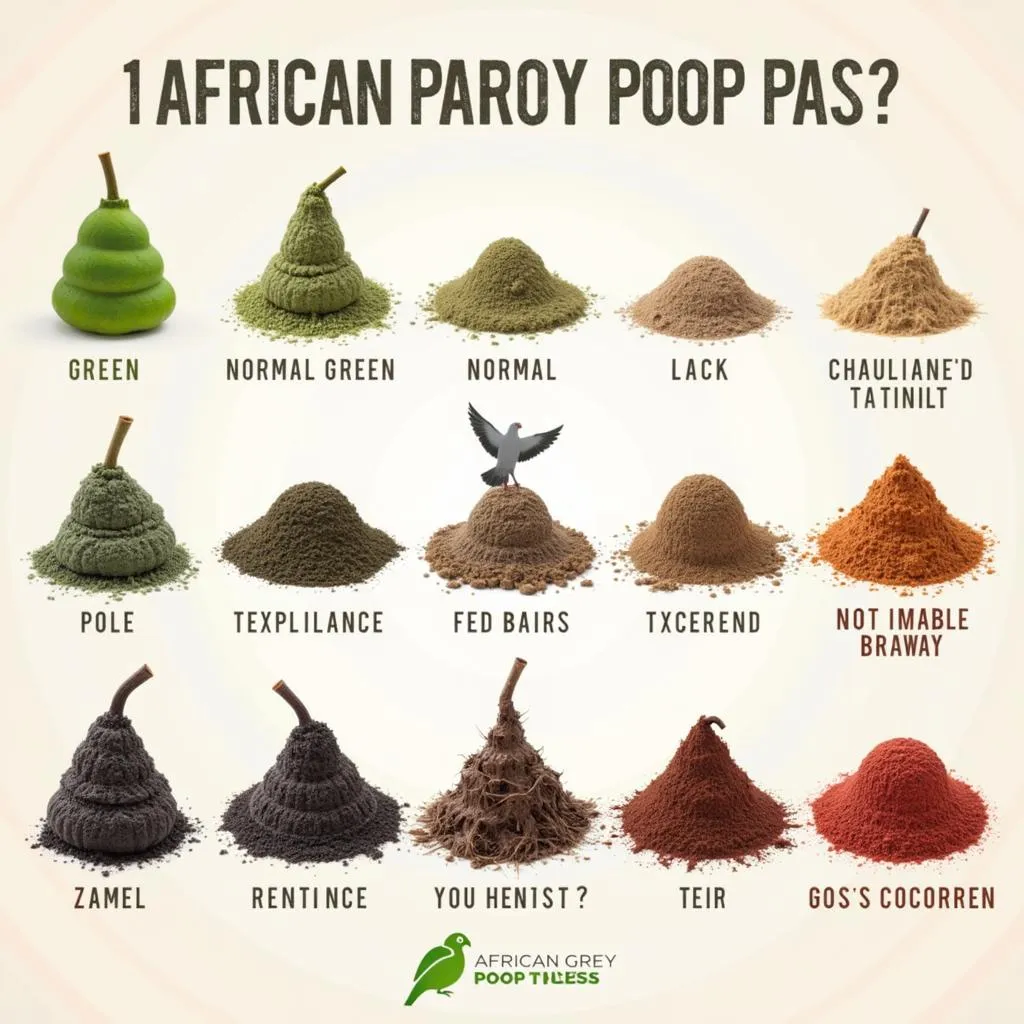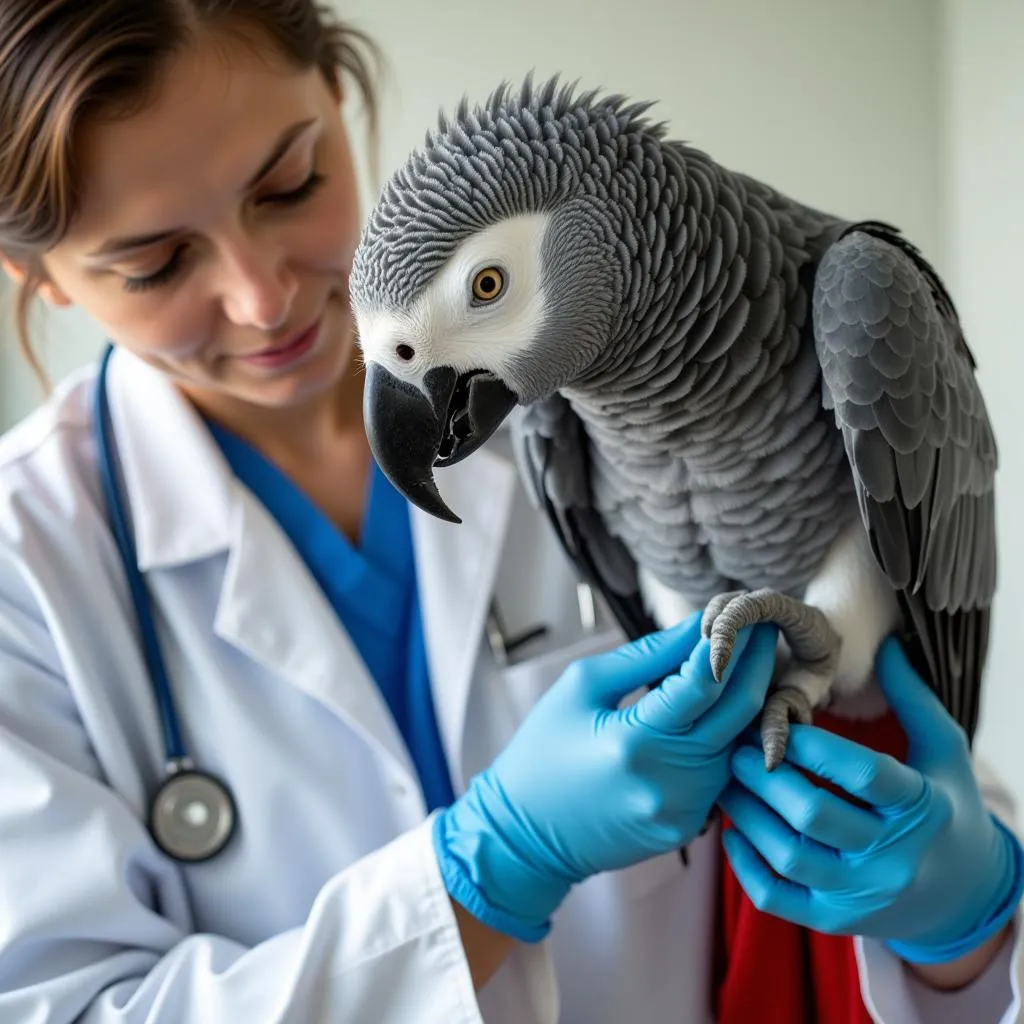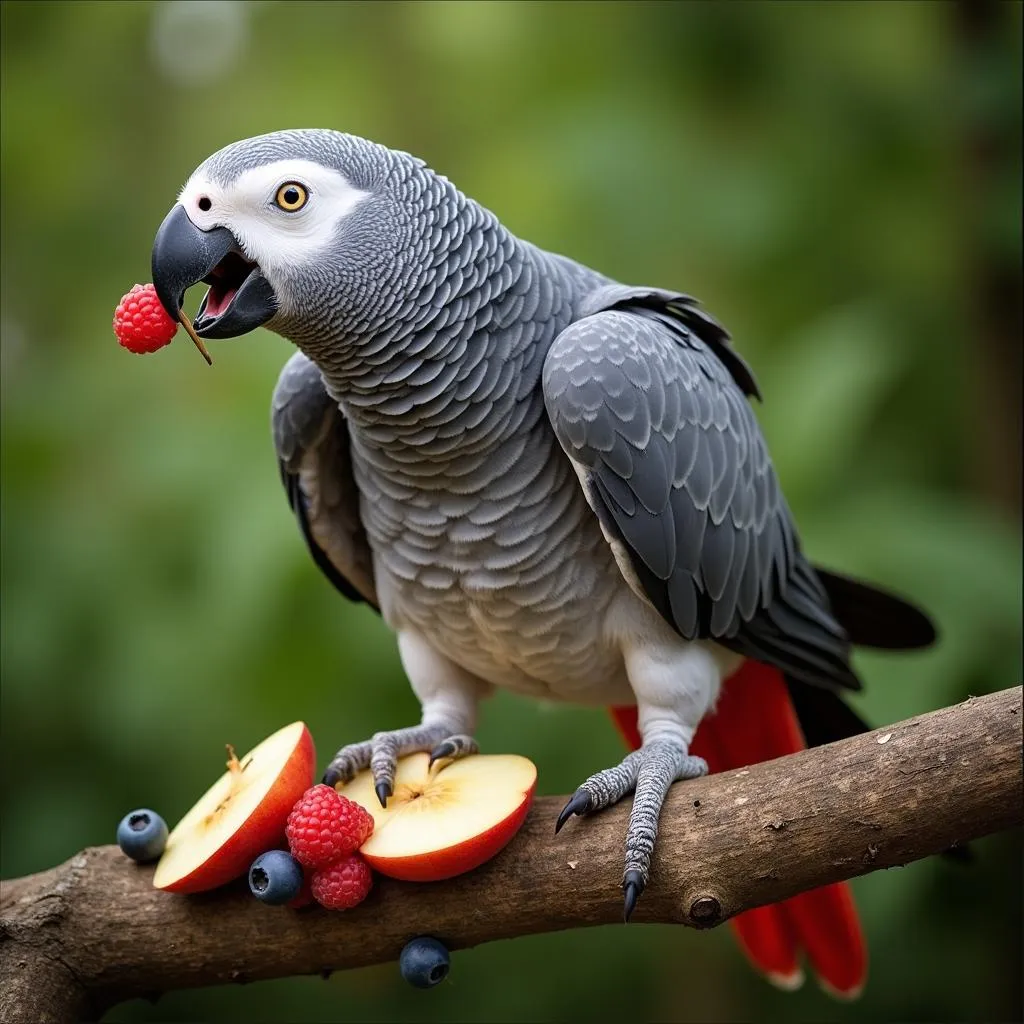Understanding Your African Grey’s Poop Chart: A Guide to Bird Health
African grey parrots are known for their intelligence, charisma, and ability to mimic human speech. But just like any other pet, their health and well-being require close attention. One of the most telling indicators of an African grey’s health is their poop. Yes, you read that right – “African Grey Poop Chart” is a common search term for a reason! By learning to decode your bird’s droppings, you can become more attuned to their needs and potentially spot problems early on.
 African Grey Poop Color Variations
African Grey Poop Color Variations
What Does Normal African Grey Poop Look Like?
Before we delve into the “what ifs” of parrot poop, let’s establish a baseline. Healthy African grey poop consists of three distinct components:
- Feces: This is the solid part of the dropping and should ideally be green to brown in color, reflecting their diet. The consistency should be firm, not runny or watery.
- Urates: These are the white, chalky parts of the poop. They represent the waste products from the kidneys.
- Urine: This is the clear liquid portion. You might not always see it as it can be absorbed by the feces or bedding.
Decoding the African Grey Poop Chart: Color Matters
Variations in your African grey’s poop can signal dietary changes or potential health issues. Here’s a breakdown of common color changes and their possible meanings:
Green Poop
While green is generally considered normal, excessively bright green poop, especially if accompanied by a change in smell, can suggest a bacterial infection.
Yellow or Orange Poop
Yellow or orange droppings can point to liver problems, which can be serious in birds. If you notice this color change, immediate veterinary attention is crucial.
Black Poop
Black, tarry poop, especially if it has a foul smell, is a red flag and could indicate internal bleeding. Seek immediate veterinary care if you observe this.
Red Poop
Don’t panic if you see red in your bird’s poop, especially if they’ve recently eaten beets or other red-colored foods. However, if the redness persists or is accompanied by other symptoms, consult a veterinarian to rule out any underlying health concerns.
 Veterinarian Examining an African Grey Parrot
Veterinarian Examining an African Grey Parrot
Beyond Color: Other Poop Changes to Watch For
Color isn’t the only indicator of potential problems. Pay attention to these factors as well:
Changes in Consistency
- Watery poop (Polyuria): This can be caused by stress, changes in diet, or more serious issues like kidney disease or diabetes.
- Runny poop (Diarrhea): Similar to polyuria, diarrhea can stem from dietary indiscretion, infections, or parasites.
- Undigested food in poop: This could indicate a problem with their digestive system or a possible infection.
Changes in Frequency and Volume
A sudden increase or decrease in the amount or frequency of droppings can be a warning sign. This might be linked to changes in diet, water intake, or more serious health problems.
Presence of Blood
Blood in your African grey’s poop is never normal. It can indicate internal injuries, infections, or other severe medical conditions requiring immediate veterinary attention.
When to Consult an Avian Veterinarian
Changes in your parrot’s droppings should never be ignored. While some may be harmless and related to diet, others can signal serious health issues. It’s always best to err on the side of caution. If you notice any significant or persistent changes in your African grey’s poop, consult an avian veterinarian immediately.
FAQs: Your African Grey Poop Questions Answered
1. How often should my African grey poop?
African greys typically poop every 15 to 45 minutes while they’re awake. However, factors like age, diet, and activity levels can cause slight variations.
2. Why is my African grey’s poop watery at night?
Watery nighttime droppings are relatively normal for parrots. This is often referred to as “night poop” and is simply their body’s way of eliminating excess water while they sleep.
3. Can stress affect my African grey’s poop?
Absolutely. Stress can lead to digestive upset in birds, resulting in changes in poop color, consistency, and frequency.
4. My African grey’s poop has a foul odor. Is that normal?
A slightly tangy smell is normal for bird poop. However, a significantly foul odor, especially if accompanied by other changes like color or consistency, could indicate an infection or illness.
5. My African grey ate some of my [insert food item]. Should I be worried?
While it’s best to stick to a parrot-safe diet, the occasional accidental nibble of human food is unlikely to be harmful. However, if you’re concerned about a specific food item, it’s always best to contact your veterinarian for advice.
 Healthy African Grey Parrot Eating Fruits
Healthy African Grey Parrot Eating Fruits
Keep a Close Eye, and Don’t Hesitate to Seek Help
By becoming familiar with your African grey’s normal pooping habits, you’ll be better equipped to spot any potential problems early on. Remember, your feathered friend depends on you for their care. If you have any concerns about your bird’s droppings or overall health, don’t hesitate to reach out to a qualified avian veterinarian.
Need immediate assistance? Contact us!
- Phone: +255768904061
- Email: [email protected]
- Location: Mbarali DC Mawindi, Kangaga, Tanzania
Our dedicated team is available 24/7 to answer your questions and provide expert care for your cherished African grey.

